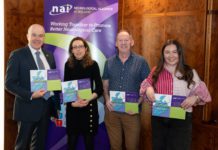Researchers at NUI Galway have developed a new model for assessing the best treatments for patients with complex coronary artery disease.
The research, from NUIG’s CORRIB Research Centre for Advanced Imaging and Core Laboratory, aims to improve individual treatments for patients by assessing whether they would best respond to surgery or implanting stents.
The group have expanded clinical assessment modelling which may improve the ability of medical professionals to inform patients and their families about the potential risks and benefits of alternative treatments for artery disease, which causes the deaths of 17.9 million people worldwide each year.
The new model creates an individual SYNTAX Score 2020 by looking at factors including age, kidney function, ability of the heart to pump blood around the body, compounding heart disease and diabetes and smoking status.
This range is used in order to individually predict the patient’s 10-year mortality and 5-year major adverse cardiac events to help the heart team decide whether the patient would benefit more from bypass surgery or treatment with stents.
It also aims to negate the bias of individual doctors towards certain treatments in favour of a more personalised approach.
The SYNTAXES study demonstrated no significant difference in 10-year all-cause death between patients randomized to bypass vs stenting.
The research is led by world renowned expert on interventional cardiology, Professor Patrick W Serruys, who was the first person to treat patients with a drug-eluting stent in 1999.
“We consider that one treatment, bypass, versus another, stent, is not globally superior, inferior or equal, but a specific treatment is superior, inferior or equal for a specific patient,” Prof Serruys said.
“If the Heart Team in a hospital uses our model for a patient, it should enable a more individualized and patient-centered care in patients with complex coronary artery disease.”
The full text of the article is being made available here http://www.thelancet.com/journals/lancet/article/PIIS0140-6736(20)32114-0/fulltext












